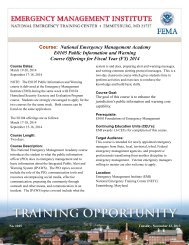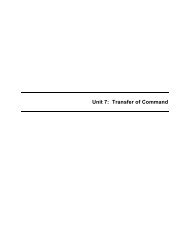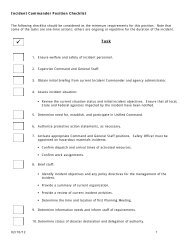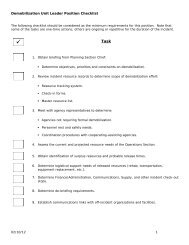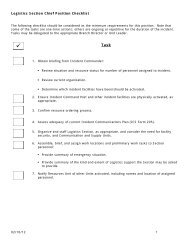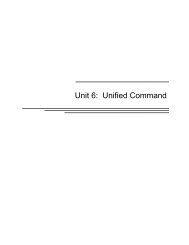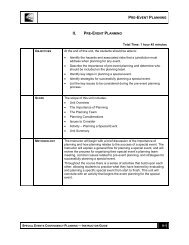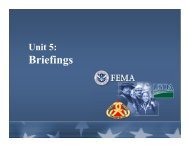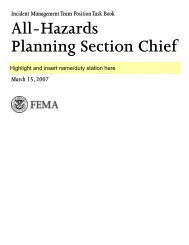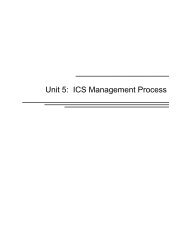Effective Communication - Emergency Management Institute ...
Effective Communication - Emergency Management Institute ...
Effective Communication - Emergency Management Institute ...
Create successful ePaper yourself
Turn your PDF publications into a flip-book with our unique Google optimized e-Paper software.
UNIT 6: EFFECTIVE ORAL COMMUNICATION<br />
Caution<br />
Effects of Failed Humor<br />
When humor misses its mark, it can forge a terribly memorable link between<br />
you, your message, and personal offense.<br />
Consider the childhood joke below, told by a young boy, and heard very<br />
differently by three adults: Jane, Charlie, and Natasha.<br />
Knock, knock.<br />
Who’s there?<br />
Ivan.<br />
Ivan who?<br />
Ivant to suck your blood (delivered with vampire body language).<br />
Jane has two 6-year-old sons. This joke makes her groan with fond recognition.<br />
She tousles the child’s hair.<br />
Charlie smiles at the child, but as a vegetarian he finds the joke a little<br />
uncomfortable and he finds a reason to move away from the child.<br />
Natasha, a recent immigrant from the Ukraine, feels hurt by what she perceives<br />
to be a joke at her expense. She patiently explains to the child that it is rude to<br />
make fun of her accented English.<br />
Using humor is risky because what we may and may not find humorous is<br />
extremely personal. Our sense of what is funny reflects our culture, values, life<br />
experience, fears, and imagination. Remember that when you tell a joke, no<br />
two people hear it exactly the same way.<br />
If humor is so risky, why use it? Because when you can make someone smile<br />
or laugh, you make a powerful connection.<br />
<strong>Effective</strong> <strong>Communication</strong> Page 6.18



